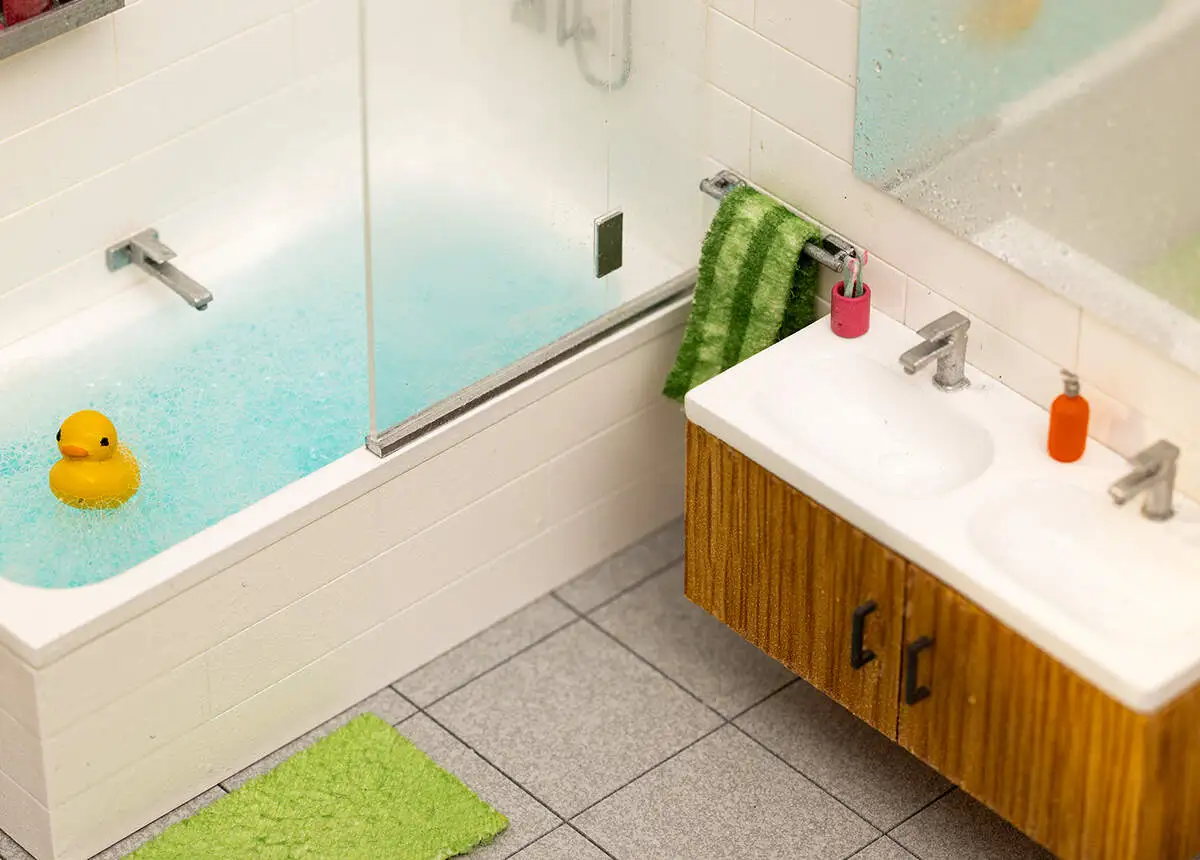You can improve your hot water energy efficiency by adjusting your tap flows, fine-tuning temperature settings, and insulating your hot water cylinder. You can make further savings by utilising rooftop solar or choosing more efficient appliances that use hot water.

Hot water system optimisation checklist
- Reduce your shower flow — The ordinary showerhead typically makes up the largest percentage of indoor water use, accounting for about 30% (Source: BRANZ). If your shower fills a 10 litre bucket in less than a minute, it's wasting water. Change your shower head for one with a more efficient flow rate of 8 to 9 litres a minute or less (Water Labelling Scheme Rating of 3 star or higher). Or, install an inexpensive shower flow restrictor.
- Ease your tap flow — Flow control aerators for taps cost between $10 and $30 and can halve the volume of water you use while still giving good pressure. They’re great for taps over sinks or tubs that aren't regularly filled up, so the water flow volume is less important.
- Fix dripping hot taps — Replace the washer or fitting - a new washer only costs a few dollars.
- Set mixer taps to cold — Mixer taps can use hot water without you even knowing it, as the hot water will flow into the pipes automatically if it’s not set to cold.
- Wrap your hot water cylinder and pipe — Pre-2002 electric hot water cylinders aren't well insulated and should have a cylinder wrap. You should also insulate the first metre of hot water pipe coming off your cylinder. Cylinder wraps cost around $60 and pipe insulation is about $5 a metre from hardware stores. Note that you can't put a cylinder wrap on a gas hot water system.
- Install a smart thermostat — Thermostats map your hot water use and will automatically turn your cylinder off or down when hot water isn’t needed. Talk to your electrician about which smart thermostat is suitable for your hot water cylinder. Make sure the one you select has the capability to communicate with the grid and respond to electricity price signals.
- Maintain your hot water system — Check the hot water system manufacturer’s instructions and owners guide for your hot water system to find out the recommended maintenance and time frames required to keep your hot water system working efficiently.
Choose efficient appliances that use hot water
When buying appliances that use hot water, like clothes washers and dishwashers, make energy and water efficiency a priority. This will help you save money on running costs. Check the Water Efficiency Labelling Scheme (WELS) rating and the Energy Rating Label to see how different models perform in these areas.
The EECA Efficient appliance calculator allows you to find the most efficient and cost-effective products.


